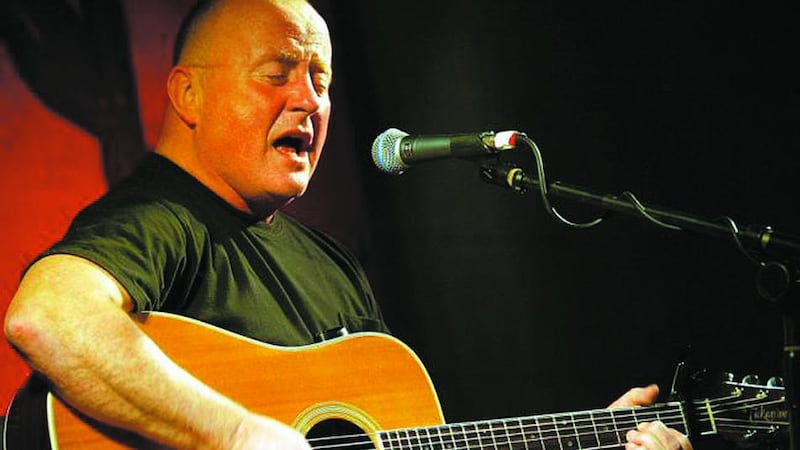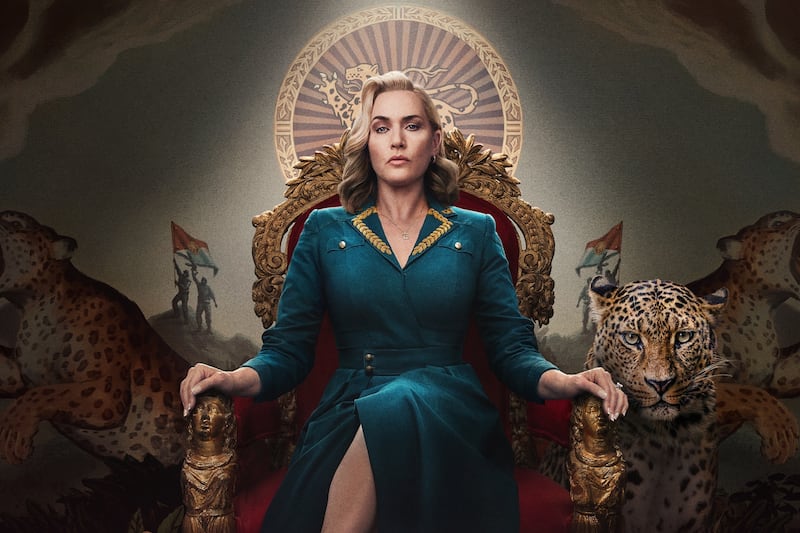CHRISTY Moore is a survivor, personally and musically. He has come through addiction, a little political bullying by British authorities and shifts in musical taste since he started out on his singer-songwriter's career.
Hearing what one reviewer called his pugilistic folk at Belfast's Waterfront Hall a few years back was a kind of history lesson. Students of Irish identity and traditional music will get another chance to enjoy his take on things next Thursday and Friday at the Waterfront.
Moore, who these days does interviews by email, admits Belfast gigs are a good experience. "After Dublin, I have played Belfast more than any other city, from the Ulster Hall to the Conway Mill and from The Green Briar to The Opera House. Each gig has its special moments," he says.
The story really began when the Newbridge native, now aged 70, co-founded influential folk band Planxty in 1972. He recalls the era when they recorded hits like The Cliffs of Dooneen, which reached number three in the Irish charts, and toured Irish festivals, with enthusiasm. "My early years with Planxty were amongst the most enjoyable times of my working life. We made music that ages very well and I loved being in Planxty back then."
For proof that Moore is right about the way the Planxty repertoire has lasted, turn to Paul Brady's Vicar Street Session, Volume 1. Brady was the singer who replaced Moore when he left the band in 1975. "It's now 42 years since Paul Brady joined Planxty but there was no better man for the job," says Moore.
Early on, Planxty opened for Donovan at an Easter gig in Galway. Asked about performing alongside the English singer, Moore simply reiterates. "I enjoyed being in Planxty." Enough said.
When a musician has a significant back catalogue of hits the audience wants to hear, it can present a problem of performance. So when Moore dusts off hits such as North and South of the River, he thinks about keeping them fresh. "Songs are forever changing and new images constantly emerge in old songs but I also like to vary arrangements. However, most of all I think I enjoy bringing new material to the set," he says.
Of course, there are some songs linked to Christy Moore which will always have a resonance. One of these is I Wish I Was Back Home in Derry whose history is inextricably linked to the era of the Hunger Strikes. Moore explains how it came about.
"Bobby Sands wrote the lyrics of this song to a Gordon Lightfoot melody and you could say it came to me from the H Blocks. I’ve been told that Bobby was a good singer, that he liked Ewan MacColl songs and had been to Planxty gigs." What is unquestionable is that Moore's decision to put this song out at a particular moment in Irish history was maybe controversial.
Asked about his republican views and whether he sees a united Ireland as possible or even desirable, he simply responds by saying that he remains a political animal. "I still take a close interest in local, national and international politics. I would not define my position but a united Ireland is certainly possible and for many it would be desirable, while many others seem to dread the prospect."
Addressing the notion of whether political folk songs remain important in Ireland, he bats back the question with a touch of humour, noting: "I don't know what you have in mind here, Lambegs and bodhrans? For some of us songs are very important while other people consider them a waste of time. I’m writing a song about it."
Of course, down the years, Christy Moore has espoused other causes and in 2005, took the stage at Glastonbury with a song about Palestinian activist Rachel Corrie. "I dedicated Burning Times to her memory. It was important to me personally. She stood before an American-built earth mover seeking to prevent the destruction of a Palestinian family home. It drove straight over her."
Moore has performed and recorded his own great versions of folk songs, none more impressive than his version of Matty Groves, retitled Little Musgrave. He says that he was influenced by the Fairport Convention number.
"Yes, I still trawl the old collections. I found Little Musgrave in an old tattered book. I heard Fairport Convention in 1969 and thought them wonderful. I believe they sparked an idea that led to Moving Hearts 12 years later."
He is still influenced by the great singers he has heard. "Namely Paddy Tunney, Len Graham, Joe Holmes, Bob Dylan, Margaret Barry, Woody Guthrie, Nina Simone, The Watersons, Luke Kelly, Jeannie Robertson, Annie Briggs."
Added to Moore's personal hall of fame would be Hamish Imlach. He has said he thinks of him when he sings Black is the Colour as Hamish taught him a lot at the time. "When I first met Hamish he had great rapport with folk club audiences. What I learnt from him was how to introduce songs and to communicate with the listeners."
Life on the road these days is quieter but Moore says he's glad to remain in the business. "Life on the road is work but it's work I’m glad to have. I love the air created by a room full of listeners."
One slightly surprising gig Moore enhanced was when he came onstage for a rousing finale with Coldplay during their set at the Oxegen festival at Punchestown racecourse in 2011. "It was good fun. Will Champion, their drummer, came to some of my gigs when he was a young lad as his mother liked folk music. They knew I was from Kildare and invited me. To be honest, I had never been to Oxegen but had run through those fields as a boy. It was home turf for me and Coldplay respected that."
Although he doesn't own an iPad, Moore admires current musicians like Wally Page, Jinx Lennon, John Spillane, Paddy Nash, Moxie, Lynched and young Derry singer Soak. He has other interests too. "Limerick versus Clare are hurling on the wireless as I answer these questions."
One indication of his significance in Irish culture is the fact his song Lisdoonvarna was included in the Penguin Book of Irish Poetry (2010). He says now. "I wish my old English teacher Henry Flanagan had lived to witness it as he would have been tickled."
Yet we should not be surprised as Moore's sense of culture ranges far and wide. As a guest on Desert Island Discs in 2007, he made a genuinely catholic choice of records. "I chose Mozart's Ave Maria by Felicity Lott, Stitch in time from Mike Waterson, Lonely Boy from Paul Anka, Joy of Living from Ewan MacColl, an American song, Joe Hill, from Luke Kelly, a slow air from Liam O’Flynn, John Reilly’s Raggle Taggle and Brennan on the Moor from The Clancy Brothers and Tommy Makem. I'd make an entirely different selection today and again next week!"
And although Moore's detention by British police at Holyhead in 2004 painted him as un or anti-establishment, that's not the real story. He comments : "My few hours in the shed there were a slight inconvenience when compared to what others had to suffer and endure. But I got my start in England at a time when I couldn't get a gig here. I learned my trade in England and Scotland from 1966 to 1972 – that's where I served my apprenticeship. One of the English Royals once played Ride On'on Desert Island Discs – I nearly fell out of the bed."
:: Christy Moore with the Mairtin O'Connor Band are playing The Waterfront Hall on June 5 and 6. Tickets 028 9033 4455 (box office) or waterfront.co.uk.







